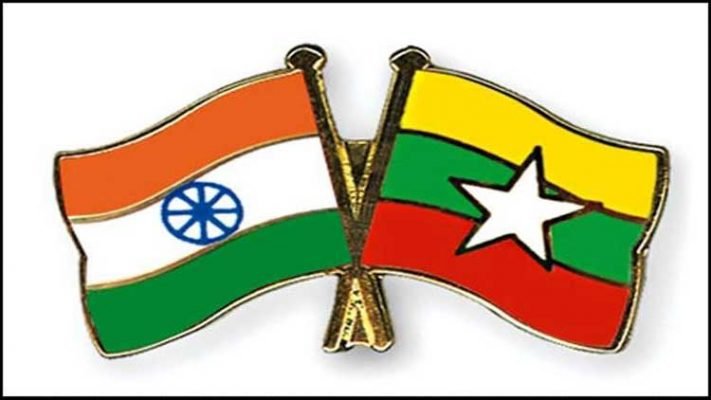By Satyaki Chakraborty
Lot of developments are currently on in finding out a way out for the cessation of hostilities in Myanmar. With the opposition National Unity Government of the deposed Prime Minister Su Kyi and the other rebels firmly in possession of a number of states in the strife-torn country defeating the forces of ruling Junta, pressure is mounting on the military bosses for starting negotiations with the rebel groups.
For Bangladesh, the restoration of peace in Myanmar is of crucial importance as about one million Rohingya refugees are staying in Coxbazar in Chittagong district since the beginning of the coup in February 2021 and it is becoming too much burden for the Bangladesh economy to continue in this manner despite some assistance from the humanitarian agencies including the UN. Bangladesh is specially concerned at the status of the Rakhine province of Myanmar which is the home place of most of the refugees.
Recent reports say that the rebels, mainly the Arakan Army have taken control of most of Rakhine province. Since the trends in the battle are favouring the rebels, and the NUG, Indian officials have also started preliminary talks with the rebels. Sources say that a more broad-based discussions will be held in the middle of November between the rebels and the officials of the Indian government.. Both India and Bangladesh have borders touching Myanmar.
Dhaka sources say that Bangladesh’s support for Rakhine State is central to the region’s stability and future. International observers acknowledge Bangladesh’s strategic significance, given its long, porous border with Rakhine, which provides a unique opportunity to influence developments across the frontier. The Arakan Army (AA), which has established control over large parts of northern Rakhine, conduct cross-border activities with Bangladesh. . Given the AA’s rise through a coordinated military and political approach, Bangladesh is in a unique position to foster dialogue and humanitarian cooperation. Active engagement could stabilise Rakhine, open pathways for humanitarian aid, and promote trade through the Teknaf port, laying the groundwork for long-term regional progress.
According to Nazbul Khan, an expert on developments in Myanmar , recent events , such as India’s outreach to Myanmar’s armed groups, reflect a shifting regional strategy. According to a Reuters report, India has begun discussions with these groups near its border, with the National Unity Government (NUG) of Myanmar confirming the dialogue, which is scheduled to take place in mid-November. While the specifics remain confidential, this move demonstrates India’s efforts to secure its border and counter China’s influence. Additionally, a recent visit by an Indian member of parliament to the Kaladan Multi-Modal Transit Transport Project underscores India’s commitment to connecting its northeastern states through Myanmar and reducing dependency on traditional routes. India’s proactive engagement highlights the need for Bangladesh to safeguard its own geopolitical interests as the situation in Rakhine evolves, says this expert who is close to the Dr. Yunus government.
Sources say that The International Crisis Group has urged Bangladesh to initiate direct dialogue with the AA, especially given its growing control over northern Rakhine. While the repatriation of the Rohingya must remain a priority in formal negotiations, forging a humanitarian partnership with the AA could be a strategic step for Bangladesh. And a shift in Bangladesh’s diplomatic posture could pave the way for more active involvement in the region.
According to Nazbul Khan, Bangladesh should take the lead in convening a multi-stakeholder dialogue that includes the AA, international humanitarian organisations, and regional partners. This dialogue could facilitate the delivery of aid across the border and address the immediate needs of the people in western Rakhine. Additionally, this engagement could set the stage for the repatriation and rehabilitation of the Rohingya in the long term. Moving beyond the covert diplomacy of the past, it is time for Bangladesh to openly assert its role, recognizing Rakhine as not only a humanitarian concern but also a potential economic partner.
Cross-border trade, cultural ties, and the functional land ports between Bangladesh and Myanmar are strategic assets that Dhaka must leverage. Bangladesh is well-positioned to be a key supplier of life-saving drugs, food, and essential goods to Rakhine, contributing to both humanitarian relief and infrastructure development. Formalising trade through the Teknaf port would offer multiplied benefits for both regions. Teknaf is crucial for cross-border commerce and has significant potential to drive economic growth. Despite recent security concerns, the port’s prospects remain strong, and its effective utilisation can revitalise trade, maximise economic benefits, and enhance regional connectivity.
At the recent ASEAN summit, a resolution was moved supporting peace talks in Myanmar. Both India and China supported the idea. Prime Minister Narendra Modi attended the summit. China has big interests in Myanmar. China has large investments. Indian government and the private companies have also invested in Myanmar. Earlier India only kept relations with Myanmar junta shunning any contacts with the opposing group. Now, latest circumstances have forces South Block to open communication channels with the rebels.
There is another aspect. China has a big influence on the rebels. In Rakhine province, the pro-Chinese influence on the rebels is big. That way China is getting advantage in both ways. It keeps the junta happy by continuing its ties, while if the rebels come to power, it has nothing to lose, it will have influence as usual on them also. India has no such advantage as it has no influence on any rebel group.
The November meeting is a big opportunity for India to have detailed discussions with the rebel groups and know their plans. Meanwhile, other ASEAN members will follow up their efforts. Thailand is the main nation which is taking the lead as it has relations with both sides in Myanmar. Bangladesh is waiting anxiously for a speedy solution so that the Rohingya refugees can go back. The interim government will now make all efforts, if needed in conjunction with China’s to play an important role in negotiations. (IPA Service)


